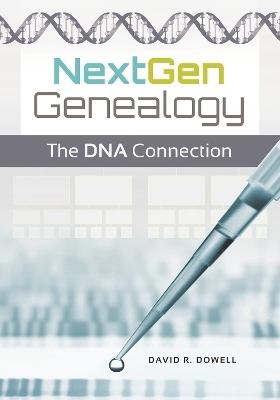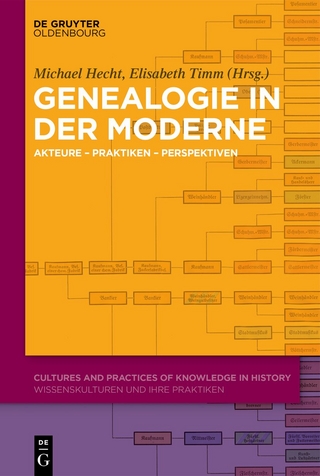
NextGen Genealogy
The DNA Connection
Seiten
2014
Libraries Unlimited Inc (Verlag)
978-1-61069-727-9 (ISBN)
Libraries Unlimited Inc (Verlag)
978-1-61069-727-9 (ISBN)
DNA testing can serve as a powerful tool that unlocks the hidden information within our bodies for family history research. This book explains how genetic genealogy works and answers the questions of genealogists and individuals seeking information on their family trees.
Now that DNA testing for genealogical purposes has existed for nearly a decade and a half—and been refined and improved during that time—it has established its value among family history researchers. It is now becoming accepted as another tool in the kit of well-rounded genealogists. This book covers this fast-growing application of genetics, empowering genealogists to apply this information to further their research. It will also enable general readers to understand how genetic information can be applied to verify or refute documentary research—and to break down frustrating walls that block the discovery of ancestors.
The book describes the three major categories of DNA testing for family history research: Y-chromosome tests for investigating paternal (surname) lines, mitochondrial tests for investigating maternal (umbilical) lines, and autosomal tests for exploring close relationships. Expert genealogist David Dowell provides guidance on deciding which test to take and identifying which members of your family should be tested to answer your most important genealogical questions. Readers will also learn how to interpret the results of tests and methods for further analysis to get additional value from them.
Now that DNA testing for genealogical purposes has existed for nearly a decade and a half—and been refined and improved during that time—it has established its value among family history researchers. It is now becoming accepted as another tool in the kit of well-rounded genealogists. This book covers this fast-growing application of genetics, empowering genealogists to apply this information to further their research. It will also enable general readers to understand how genetic information can be applied to verify or refute documentary research—and to break down frustrating walls that block the discovery of ancestors.
The book describes the three major categories of DNA testing for family history research: Y-chromosome tests for investigating paternal (surname) lines, mitochondrial tests for investigating maternal (umbilical) lines, and autosomal tests for exploring close relationships. Expert genealogist David Dowell provides guidance on deciding which test to take and identifying which members of your family should be tested to answer your most important genealogical questions. Readers will also learn how to interpret the results of tests and methods for further analysis to get additional value from them.
David R. Dowell, PhD, is an author and genealogist who has been researching his family history since the 1960s. He is the manager of two surname DNA projects and was an academic librarian for 35 years.
Contents
Preface
Chapter 1: What is DNA? Family Information inside Our Cells
Chapter 2: Who is the Father? "guY" DNA
Chapter 3: Who is the Mother? "umbilical" mtDNA
Chapter 4: Who is Closely Related? atDNA
Chapter 5: What is the X Factor? A Different Inheritance Pattern
Chapter 6: What is Extreme Genealogy? Haplogroups
Chapter 7: Is it Ethical? Balancing Technological Possibilities with Human Values
Chapter 8: How do you continue to document your family story? Continuous Learning
Glossary
Further Reading
Index
| Erscheint lt. Verlag | 25.11.2014 |
|---|---|
| Sprache | englisch |
| Maße | 178 x 254 mm |
| Gewicht | 397 g |
| Themenwelt | Geisteswissenschaften ► Geschichte ► Geschichtstheorie / Historik |
| Geschichte ► Hilfswissenschaften ► Genealogie | |
| ISBN-10 | 1-61069-727-8 / 1610697278 |
| ISBN-13 | 978-1-61069-727-9 / 9781610697279 |
| Zustand | Neuware |
| Haben Sie eine Frage zum Produkt? |
Mehr entdecken
aus dem Bereich
aus dem Bereich
Akteure - Praktiken - Perspektiven
Buch | Hardcover (2022)
De Gruyter Oldenbourg (Verlag)
99,95 €
